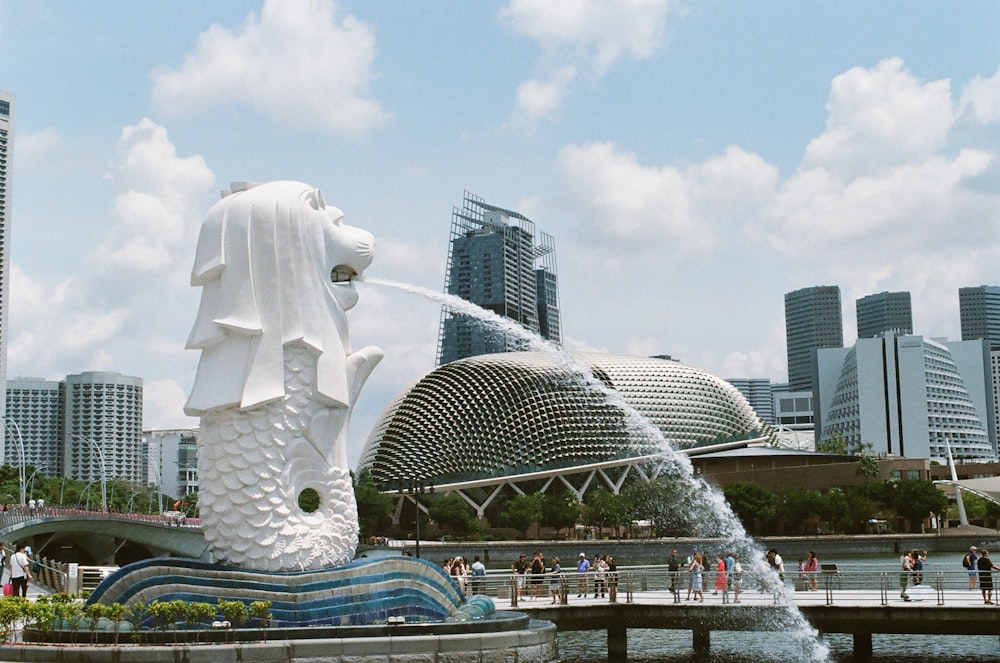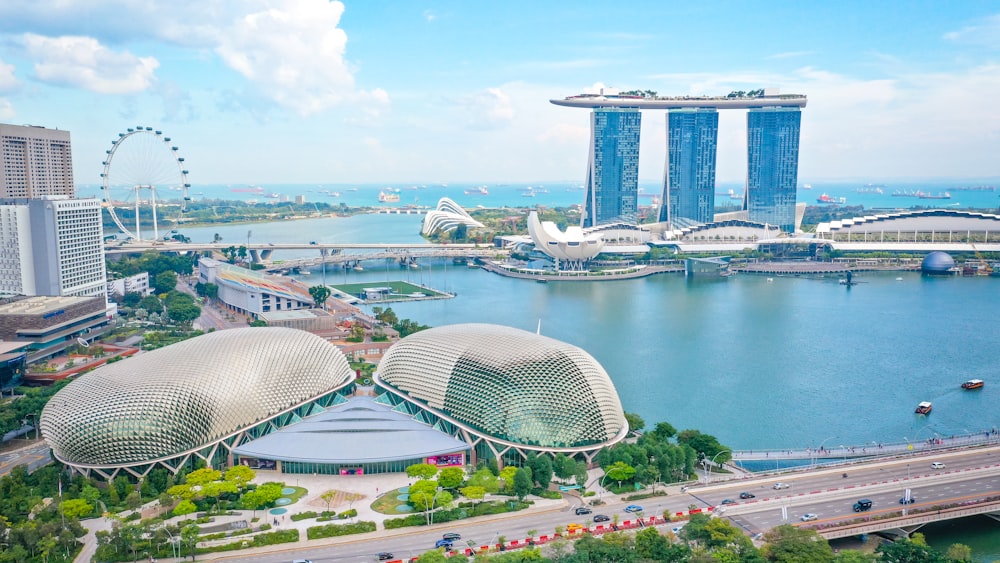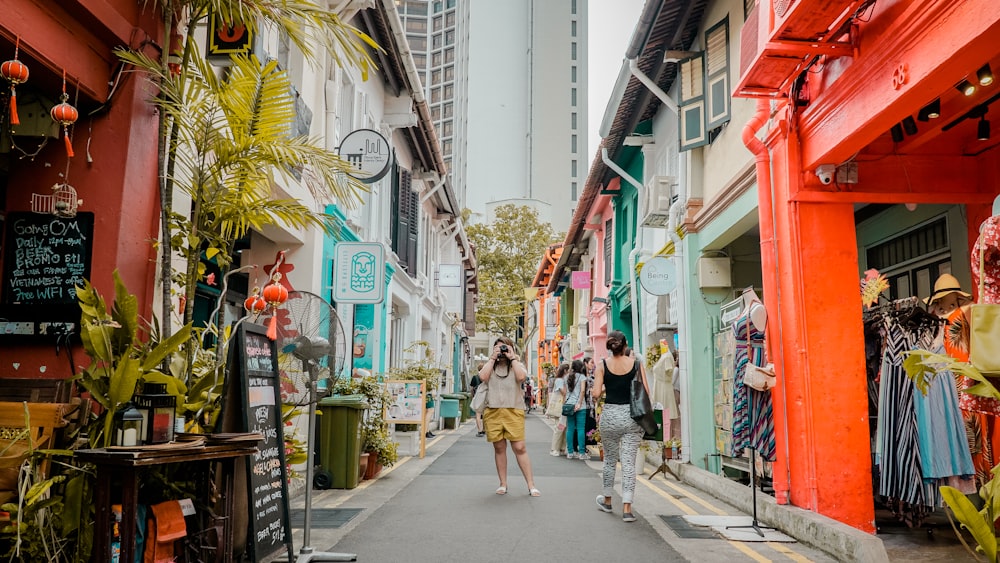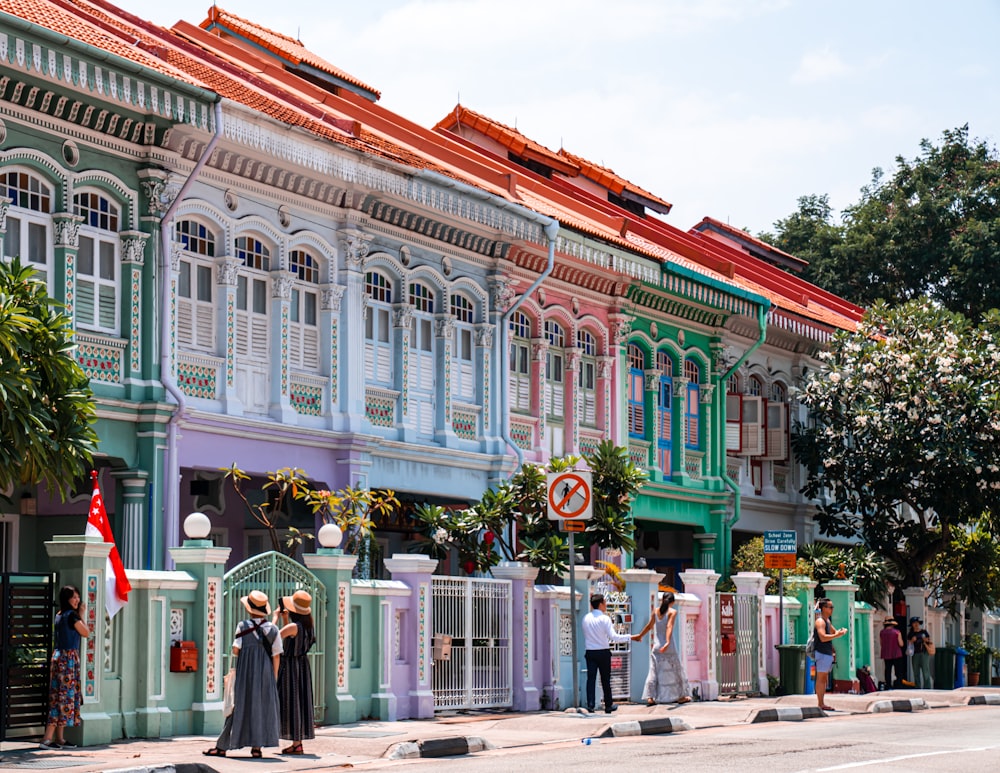Are you considering moving to Singapore? If you are, then this article is for you.
You will find 8 straightforward hacks to help you make the necessary preparations for moving to and living in Singapore. We will start with the pros and cons of living in Singapore, then we’ll recommend some neighbourhoods for you to consider.
To help you craft your budget, we will share information about the cost of living in Singapore. You will also find other tips about transportation and how you can make your relocation process seamless.
1. Find Out The Pros And Cons Of Living In Singapore
Singapore is also known as the Lion City and is a popular destination for expats. Living in Singapore offers you various benefits as well as some downsides. It is important to know these before you pack your bags and relocate so that you’ll make a more informed decision.
Therefore, here are some pros and cons of living in Singapore, to help you get ready to settle into this Little Red Dot.
The Pros Of Living In Singapore
Tropical Climate
Singapore experiences a tropical climate, which only has dry and wet seasons. The dry season is from March to August, with the peak temperature reaching 91.40ºF (33ºC).
Meanwhile, during the wet season, the temperature is around 75.2 to 80ºF (24 to 27ºC). You can expect more rainfall in November and colder temperatures in January.
Living in a tropical climate means you can enjoy outdoor activities all year round. You don’t even need different clothes for each season. As long as you have a raincoat, umbrella, and sunscreen ready, you’re all set to enjoy living in Singapore.
The Cleanliness
Singaporeans are serious about keeping their city clean. If you are caught littering, you can get fined up to SGD 2,000 for the first conviction.
This policy works wonders in maintaining cleanliness in Singapore. If you are averse to living in a dirty area, moving to Singapore will be perfect for you.
High Safety Rate
Overall, Singapore is a safe country. The crime level index is categorised as low, at 24.83.
In addition, the safety rates of walking alone during daylight and night are high, at 79.71 and 72.84, respectively. This makes Singapore the perfect place to live for everyone, including women and senior citizens.
The Island Is Small
It is easy to get around Singapore. Besides the efficient transportation system, Singapore is also small in size. It means you can expect a short commuting time on this island.
The Cons Of Living In Singapore
Owning A Car Is Expensive Here
It is expensive to own a car in Singapore. You need to calculate the Additional Registration Fee (ARF), Vehicular Emission Scheme (VES), GST, and Excise Duty. On top of that, you still need to consider the dealer margin.
Considering a car is not an asset that will experience an increase in value over time, it will be wise not to buy a car if not necessary. Moreover, Singapore has excellent public transport that can cover your transportation needs.
2. Make Sure To Find A Neighbourhood That Best Suits Your Needs
After deciding on your housing budget, now it is time to secure a home. Make sure to do this step before moving to Singapore.
Below are some areas that are suitable for expats, singles or families.
Holland Village (pictured above)
This area has been an expats’ favourite for a long time. Holland Village is well connected to the other places on the island, with an MRT station in the area.
In addition, there are amenities such as restaurants, a hawker centre, cafes, shops, and bars here. You will also love the easy access to city attractions like Botanic Gardens and Orchard Road from this neighbourhood.
Central Bukit Timah
This neighbourhood is highly recommended if you plan to move with family members, especially children. The reason is the availability of schools around the area. This will make it easier for your children to commute to school daily.
This area offers proximity to Orchard Road, the Botanic Gardens, plenty of restaurants, and two Cold Storage supermarkets. Living here also brings you near public transportation such as an MRT station and bus service.
Katong
Katong is perfect if you do not want to have the typical expat life and prefer to experience local Singaporean life.
This vibrant neighbourhood is lined with shops and local hawker stalls. You will also enjoy visiting recreational places such as East Coast Park, Coastal Playgrove, and Parkway Parade Shopping Mall.
3. Estimate Your Monthly Budget Based On The Average Cost Of Living In Singapore
It is not a secret that Singapore is one of the most expensive countries in Asia. Therefore, you should know the average cost of living in Singapore before moving.
Before we look at the average living expenses in Singapore, you need to familiarise yourself with Singapore Dollar (SGD). You can convert the numbers we share below to your local currency to get an idea of how much you should prepare for the monthly budget.
It is estimated that a family of four spends around 9,193 SGD, while a single person spends 5,755 SGD. These are the estimates of monthly expenses, excluding the rental costs.
The average monthly rent for an apartment in a non-expensive area ranges from 2,206 SGD to 3,369 SGD. You can expect to spend around 200 SGD per month for utilities depending on the size of your accommodation.
To save more money in Singapore, you can check out the following tips:
Shop during the warehouse sales to get bigger discounts for branded goods.
Set up an automatic savings plan to deduct the balance monthly from your bank account.
Dine at hawker centres or inexpensive restaurants to cut your meal budget.
Choose walking or jogging rather than paying for a gym membership.
4. Search For Job Opportunities in Singapore By Learning About The Biggest Industries
Singapore is known as a business and work destination. However, securing a job in Singapore can be challenging.
Therefore, you need to learn about the major industries in Singapore to help you find job opportunities.
Here are the biggest industries in Singapore for your reference while hunting for a job:
- financial services,
- manufacturing,
- processed food and beverages,
- tourism,
- life science, and
- offshore platform construction.
Another thing to keep in mind, fluency in Mandarin Chinese or Malay languages will give you an advantage when applying for a job, especially in the tourism or communication sectors.
Remember to clarify with your employer regarding the required documents for your visa application and health insurance when you get a job offer. If you have international health insurance from your home country, please ensure that you can use it in Singapore.
5. Learn The Best Ways To Go Around Singapore
Taking the Mass Rapid Transit (MRT) and Light Rapid Transit (LRT) systems is the best way to go around Singapore. You can also find buses and taxis to commute to your destination.
In addition, if your destination is not that far, walking is the best option to travel. Singapore city centre is walkable with pedestrian paths.
You can also enjoy strolling, jogging, and cycling on park connectors to visit the green spaces. Visit the official National Parks website to check the park connectors’ routes.
6. Take Time To Visit The Best Places For Leisure In Singapore
Singapore may be small in size, but this country has many exciting places you can visit on weekends or off days.
Below are some iconic places in Singapore where you can enjoy the view, shop, eat, and relax:
- Marina Bay Sands,
- Orchard Road,
- Adam Road Food Centre,
- Singapore Flyer (pictured above),
- Singapore’s Chinatown,
- Singapore Zoo, and many more.
To make your exploration even more fun, you can ask your local friends for recommendations of “non-mainstream” city attractions. This way, you will never get bored in Singapore.
7. Enjoy The Culinary Adventure
Singapore is a place where people from different cultural backgrounds live together. This diversity is reflected in the culinary scene in Singapore.
Getting along with the food is one of the best ways to settle in a new city. Therefore, give the local dishes a try while you are in Singapore.
Here are some iconic dishes that you would be happy to try in Singapore:
- laksa,
- Hokkien prawn mee (picture above),
- Hainanese chicken rice,
- kaya toast, and
- chilli crab.
To explore more food in Singapore, you can visit hawker centres. These quaint open-air complexes house many stalls selling various local dishes with Chinese, Malay, Indian, and western flavours.
You can also use the culinary adventure as a chance to make new friends with the locals and eventually come out of your expat bubble.
8. Check Out The Following Hacks To Have A Smooth Relocation To Singapore
We will share three practical and efficient hacks below to help you prepare for your relocation. Make sure you do all these hacks before your moving trip to Singapore.
Make A Checklist
Making a checklist is the most straightforward hack to help you prepare for your relocation process. You can track your moving progress easily by following the list you make.
Below are points that you can include in your moving checklist:
- things to do and the timeline (visa application, packing, etc.),
- documents,
- important contacts,
- items to pack,
- items to donate and sell,
- essentials for moving (new suitcase, boxes, etc.),
- list of travel precautions,
- budget for moving preparation and trip, and
post-moving budget.
You can modify the list to fit your needs. This way, you do not have to memorise everything, which will add to the stress.
Contact The Important Parties
At least two weeks before your moving trip, contact your employer and real estate agent to give them a heads up. You can confirm your arrival and make sure that you have all the essentials ready before moving to Singapore.
Engage The Services Of A Moving Company
Suppose you are wondering how to get your belongings to Singapore efficiently. In that case, the answer is to engage a moving company like Santa Fe Relocation.
Santa Fe has a team with experience in helping people relocate locally and internationally. Contact us two or three months before your moving trip to give our team time to schedule your shipment.
Conclusion On Moving To Singapore
Moving to Singapore is an excellent way to pursue better job opportunities and high living quality.
This country also offers friendly and safe neighbourhoods for expats with amenities nearby. In addition, there are plenty of options of places to visit for recreation and local dishes to explore.
During your moving preparation, it will be best to make a checklist that includes everything you have to do or remember. You should also contact important parties like the employer and real estate agent to give them a heads up.
Engaging a moving company like Santa Fe Relocation is a smart decision to avoid more stress during your moving trip. You won’t have to carry heavy luggage if you have Santa Fe ship your belongings for you.
Frequently Asked Questions About Moving To Singapore
Is Moving To Singapore Worthwhile?
Singapore is a great place to work, live, and have fun. This country does offer not only job and business opportunities but also entertainment and leisure. If these are what you’re looking for, then moving to Singapore will be worthwhile.
Can I Move To Singapore Without A Job?
If you want to work and live in Singapore legally, you need a job in the first place. In addition, your salary should meet the minimum requirement to be able to apply for a work visa.
The minimum salary to be eligible for an employment pass is 4,500 SGD monthly, except for employment in the finance sector, where it is 5,000 SGD.
Is Singapore A Good Place For Expats?
Yes. Singapore is one of the top Asian cities for expatriates from all over the world. This country offers a high standard of life quality with excellent physical infrastructures, a highly qualified workforce, and an attractive investment scheme.
Can Santa Fe Help With My International Relocation To Singapore?
Yes, we can help you with your international relocation to Singapore. You can simply visit our official website to start a quote.
If you need more information or want to consult your needs, please contact us to get assistance from our team.
Check out also the following articles for more tips and information about the relocation process:
- 10 Tips for a Successful Interstate Move,
- 5 Telltale Signs that it’s Definitely Time to Relocate to a New City.
Here are also some articles that will be useful as reference when you move to the main cities around the world:





